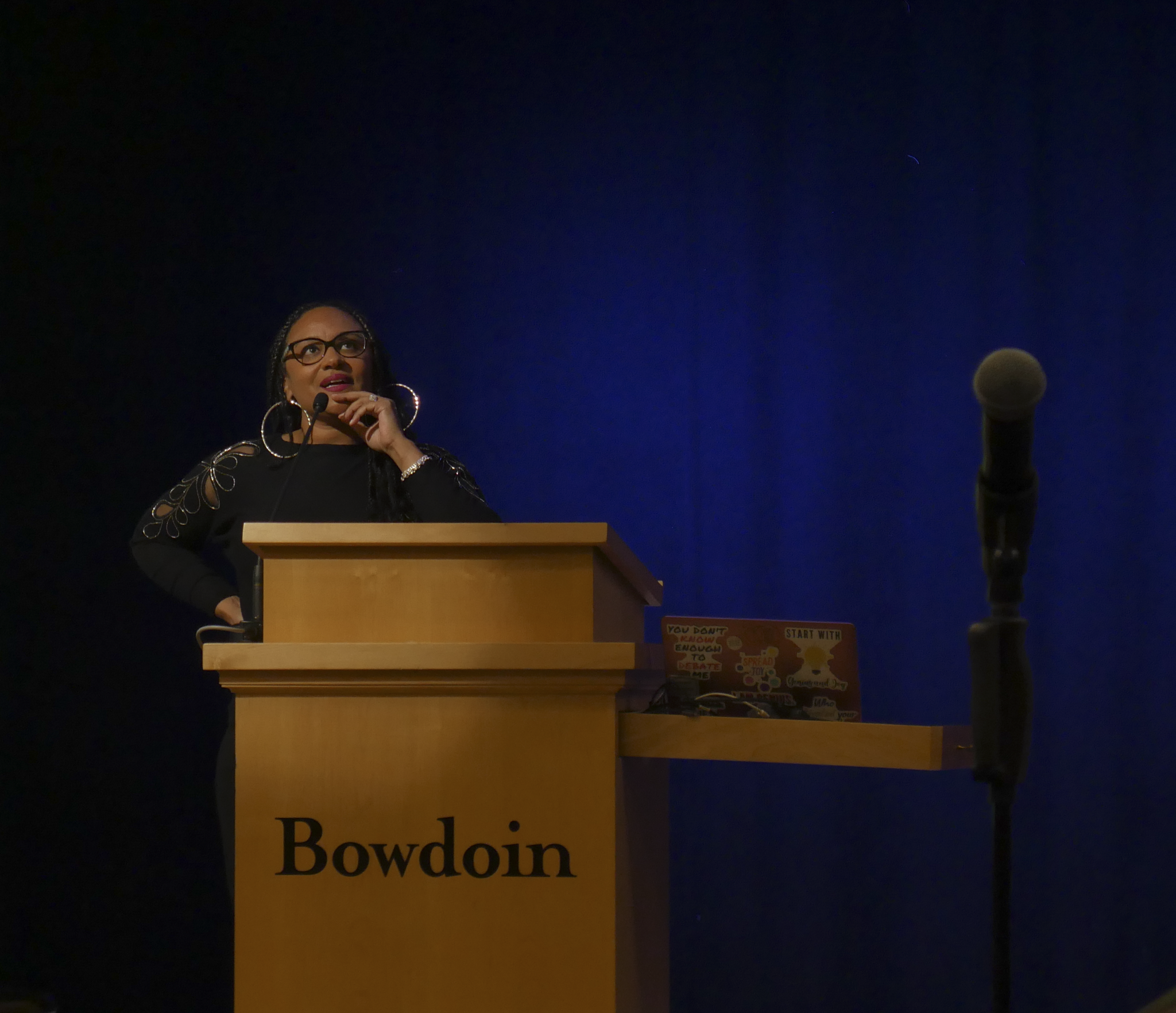Gholdy Muhammad talks embracing genius, justice and joy
October 24, 2025
 Isa Cruz
Isa CruzOn Thursday evening, University of Illinois Chicago Professor Gholdy Muhammad presented a talk titled “Cultivating Genius and Joy in Education through Culturally and Historically Responsive Pedagogies” in Kresge Auditorium as the 2025 iteration of the Brodie Family Lecture series. Her talk discussed humanity, culturally-responsive pedagogy and learning with intentional joy in education.
Muhammad began with the simple but profound question, “How is your heart?”—inviting audience members to assess their emotional and spiritual wellbeing before engaging in academic work.
Muhammad’s pedagogy is centered around the conviction that each child possesses innate genius. She explained that when educators are prompted to describe their students, specifically Black students, their terminology evokes educational deficits rather than their comprehensive identity.
“I would hear things like, ‘They’re unmotivated [Black students]. They hate to read and hate to write,’” Muhammad said. “That’s not centering their humanity. We don’t start the story off with who they’re not, what they can’t do or what the system has caused. We start with their genius.”
She implored educators to assess their language usage, asserting that terminology such as “disadvantaged,” “sub-groups” or “struggling,” particularly when applied to students with Individual Education Plans (IEPs) and students of color, prevents teachers from recognizing the genius within each student.
Muhammad presented a statistic from the 2024 National Assessment of Educational Progress (NAEP), which stated that Black fourth-grade students in America attained 17 percent proficiency in literacy and 13 percent in math.
Evaluating these numbers, she remarked that the inherent educational response is to enforce existing curriculum and learning approaches that have proven ineffective.
“Who needs the intervention?” Muhammad said. “Is it the child or the system?”
For Muhammad, “genius” is not a term exclusively reserved for the “Einsteins” within education but an inherent trait among learners. She repeatedly used the metaphor of a plant, inspired by Stevie Wonder’s “Journey Through the Secret Life of Plants,” to capture this belief.
“If you’ve ever planted anything, you can’t yet see the richness and beauty of the petals and colors,” Muhammad said. “You have to believe in it, and that would indicate what kind of watering you do.”
Muhammad also recounted the historical legacy of Black genius, providing examples from the literacy-enamored society of Timbuktu, along with maps traced in constellations and woven into braided hair. She also discussed conscious social justice efforts: the 1969 demands of Brooklyn College students and persistent advocacy of Mexican-American students against educational discrimination.
Furthermore, she explained that language in education has been a prominent form of erasing such genius, whether through the establishment of Indigenous boarding schools or textbooks perpetuating positive narratives of American slavery. Language, Muhammad argued, embodies profoundly human self-expression and the risks of oppression and manipulation.
“We still see a lack of culturally-responsive educational policy, and we still see the banning of books,” Muhammad said. “What we’re really banning is intellect, truth, joy and history.”
Muhammad shared that contemporary education deprives students of personal connections to their cultural identities and shared experiences. Reducing education to standardized expectations also removes practical applications from curricula and fails to adapt to changing times.
In response to these concerns, Muhammad proposed a five-part pedagogy that includes identity, skills, intellect, criticality and joy in order to restore an inspiring and culturally competent approach to education. Muhammad contrasted skill with pursuit, a continuous process where students have greater influence over their development and learning goals.
“Teach the proficiencies needed across different disciplines and content areas,” Muhammad said. “Teach intellect. The difference between intellect and knowledge is that knowledge remains in your mind. Intellect, you can do something with.”
Muhammad’s philosophies resonated with attendee Eva Sola-Sole ’27.
“It’s wonderful to see a room of people collecting over an excitement to educate students and a motivation to make their pedagogies better,” Sola-Sole said.

Comments
Before submitting a comment, please review our comment policy. Some key points from the policy: